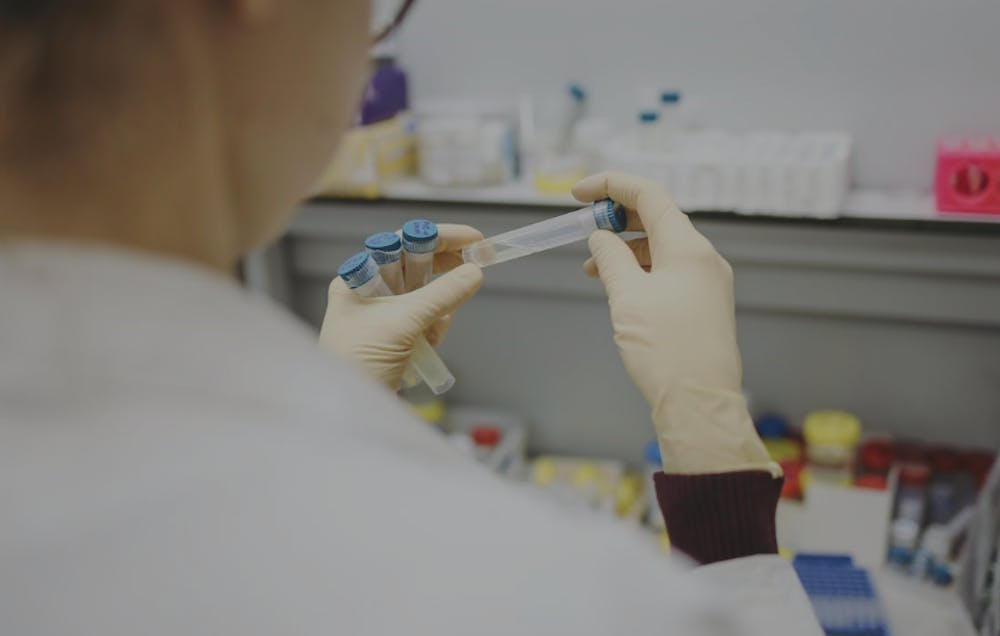Remember the smallpox outbreak? Just like COVID-19 showed itself to develop variants of the virus, smallpox resurface with what scientists called, Monkeypox. As of July 23rd, the WHO declared a global health emergency over the outbreak of monkeypox. On August 3rd, the US declared monkeypox a public health emergency, as s means to respond and address the virus as quickly as possible before it spread over the country. Cases was identified amongst men, gay men in specific, according to the WHO, which begin the idea that monkeypox can only be transmitted through “gay sex.”
Although anybody can get monkeypox, the media has blamed and centered this disease directly on the LGBTQ+ community. Rhetoric surrounding monkeypox reminds us of the rhetoric surrounding the AIDs epidemic, where a large population of the US thought that only gay men could give and get monkeypox, spreading misinformation out to the public. This misinformation about monkeypox only exclusively affecting gay men can convince the public who isn’t gay as lower risk of contracting and spreading monkeypox than they actually are, which is a dangerous mindset as they would think that monkeypox doesn’t apply to them or affect them. I interviewed two AU students, sophomore Owen O’Malley and Junior Tobias Javage, who recently got their vaccine due to how impactful the rhetoric of the monkeypox vaccine presented itself to be.
Bekla Kouakou: There was several scares in the public when news about monkeypox came out. What drove you to get the vaccine?
Toby Javage: I am pretty sure the rhetoric surrounding around monkeypox made up my decision to get the vaccine. It really scared me. Even though I knew it was probably the agenda of the US to spread that information to get people like me, gay men, to get the vaccine, I still wanted to get it just to make sure I am protected from the virus.
Owen O’Malley: Definitely my fear of what I was seeing on social media and the symptoms of it. The symptoms looked like a scary experience to go through and since the media was hampering on gay men specifically to get it, I felt like I had to do it just because I am a gay man.
BK: Do you think because the media emphasizes on sexuality drove you to get the monkeypox vaccine?
OO: Definitely. I'm pretty sure I wasn't the only one that rushed to register for the vaccine as soon as it was available to the public. As a gay man, I knew I had to get it as soon as it became available to public. The WHO and the US makes it seem as if its only for people who are part of the LGBTQ+ community, which obviously isn’t true.”
TJ: The media does place a huge emphasizes on sexuality as the cause of the spread of monkeypox when it’s a negative rhetoric to be spreading about. Although obviously that’s bad, I honestly don’t think taking the vaccine is being complacent in the rhetoric the media is spreading about this virus, I think it’s more being proactive to prevent me possibly catching this virus. I obviously disagree with the rhetoric that is being spread, but I was really scared when I heard the amount monkeypox spread in the DC area.
DC Health has three DC health monkeypox clinics open to help reduce the spread to those at high risks. The clinics offered limited spots available to the public, and only to those who were experimenting system and/or those who fit the model of who is high-risks. Those who are high risks are considered as:
Gay, bisexual, and other men who have sex with men and have had multiple (more than one) or any sexual partners in the last 14 days; or
Transgender women or nonbinary persons assigned male at birth who have sex with men; or
Sex workers
Even though DC Health highly recommends the vaccine more to those who identify with those options, anyone can get it to protect themselves from monkeypox.
DC health has opened up three clinics in these locations:
3640 Martin Luther King Jr. Ave SE – Ward 8
7530 Georgia Ave NW – Ward 4
1900 I St NW – Ward 2
Right now, anyone can pre-registered for the monkeypox vaccine if they can and want on the DC health website.
The media labeling monkeypox as a disease that can only affect the LGBTQ+ community is a) negatively portraying the LGBTQ+ community, and b) spreading misinformation out to the public. Transmissions has been shown that the disease spread by close contact with someone who carries monkeypox, and spreading the idea that the only one who carries monkeypox LGBTQ+ community is very dangerous and stigmatizing. Our media has to do a better job in getting a unified front to effectively stop the spread of monkeypox.
Photo Credits by Polina Tankilevitch



